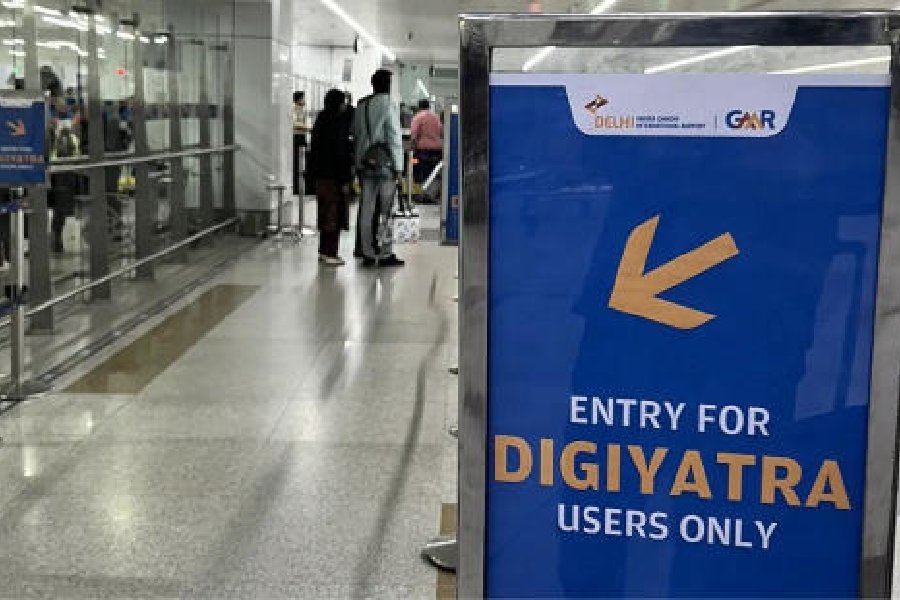Any global expansion of DigiYatra, which facilitates seamless and contactless travel at domestic airports through facial recognition technology, will involve negotiations with multiple stakeholders and ironing out sensitive border issues, according to CEO Suresh Khadakbhavi.
“We have to take all stakeholders into confidence. The process has to be defined. We understand border crossing is a sensitive issue. Obviously, we don’t want to fail at all over there. So we want all these things to be sorted out with the multiple stakeholders before expanding the service internationally,” Khadakbhavi told The Telegraph.
Launched in December 2022, DigiYatra has 14 million users across 20 airports in India and is planning to expand to several other domestic airports. The digital platform currently witnesses a daily enrolment of 25,000-30,000.
Khadakbhavi said international rollout of the service would require discussions with the Bureau of Immigration, home ministry and the external affairs ministry. “When we talk about international processes, it means automated border control. Automated border control means the Bureau of Immigration has to be taken into confidence.”
The immigration bureau checks the credentials of cross-border visitors to filter out illegal immigrants. Khadakbhavi said DigiYatra fliers could create credentials using e-passports in advance, which could then be verified by immigration officials.
He also stressed the need for a mutual data standards policy, considering the fact that data protection laws varied from country to country.
On how foreigners can avail DigiYatra while travelling within India, Khadakbhavi said they could create credentials using a passport and use it at the airports. However, this policy is being tested now, and the DigiYatra would need an agreement with the International Civil Aviation Organisation (ICAO) to implement it.
The ICAO has a public key directory, which serves as a central repository to exchange the information required to authenticate e-passports.










